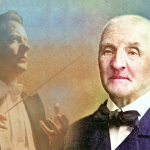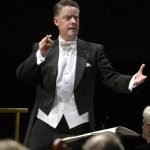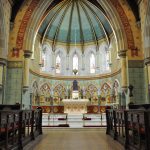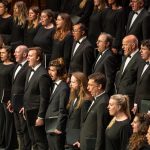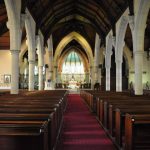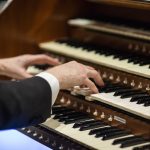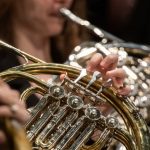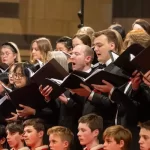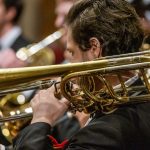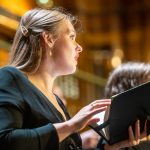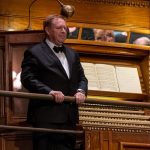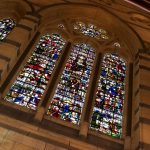TICKETS NOW ON SALE !
A work of tremendous power and beauty, Anton Bruckner’s Te Deum is the work the great composer himself called “the pride of his life”.
Composed from 3 to 17 May 1881, when he was finalizing his Symphony No. 6, Bruckner resumed work on his Te Deum on 28 September 1883 after finishing his Symphony No. 7. The vocal and orchestral score was completed on 7 March 1884. The ad lib. organ part was added on a separate score on 16 March 1884. The composer dedicated the piece A.M.D.G. (short for Ad majórem Dei glóriam, which means “For the greater glory of God” in Latin) “…in gratitude for having safely brought me through so much anguish in Vienna.”
The Te Deum was premiered in the Kleiner Musikvereinssaal in Vienna on 2 May 1885, with the choir of the Wiener Akademischer Richard Wagner Verein, and Robert Erben and Joseph Schalk substituting for the orchestra on two pianos. Hans Richter later conducted the first performance with full orchestra on 10 January 1886 in the Großer Musikvereinssaal in Vienna.
Thereafter, there were almost thirty more performances within Bruckner’s lifetime, both with and without orchestra. The last performance, which Bruckner attended, was conducted by Richard von Perger at the suggestion of fellow composer Johannes Brahms. On his copy of the score, Gustav Mahler crossed out “für Chor, Soli und Orchester, Orgel ad libitum” (for choir, solos and orchestra, organ ad libitum) and wrote “für Engelzungen, Gottsucher, gequälte Herzen und im Feuer gereinigte Seelen!” (for the tongues of angels, seekers of God, chastened hearts, and souls purified in the fire!).
Bruckner considered his Te Deum the finest work he ever composed for the rest of his life.
Bruckner was a devoutly religious man, and composed numerous other sacred works, regarded by many as some of the finest examples of sacred choral music composed in the twentieth century. He wrote about forty motets, and at least seven Masses. In this concert you will hear a selection of some of his most famous and most important motets, including: Ecce Saccerdos Magnus, Os Justi meditabitur, Locus Iste, Afferentur Regi, and Tota Pulchra Est as well as works for brass and organ.
Four magnificent vocal soloists will join the acclaimed Royal Melbourne Philharmonic Choir, and brass players of the Royal Melbourne Philharmonic Orchestra. They will be joined by the mighty organ at historic All Saints Church in a spectacular concert not to be missed!
Andrew Wailes, conductor
Helena Dix, soprano
Dimity Shepherd, mezzo-soprano
Michael Petruccelli, tenor
Christopher Hillier, baritone
Andrew Bainbridge, organist
Royal Melbourne Philharmonic Choir
Brass players of the Royal Melbourne Philharmonic Orchestra
